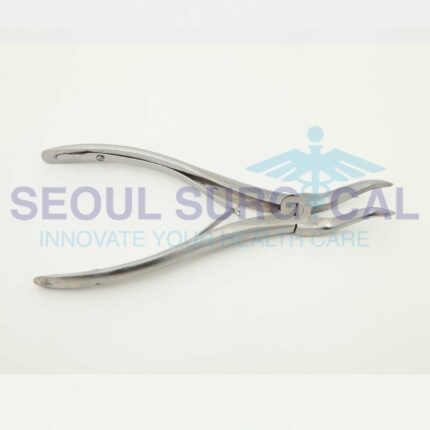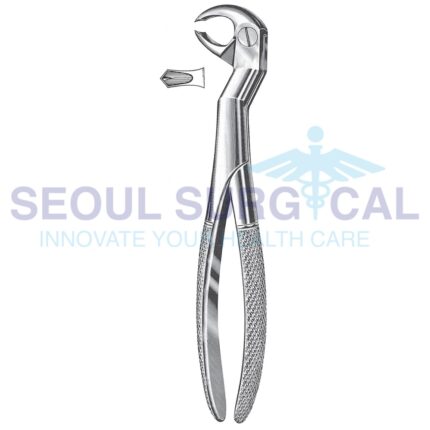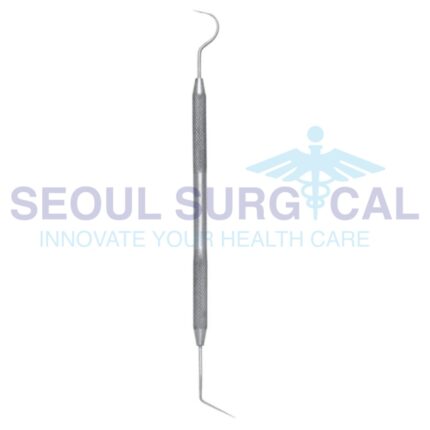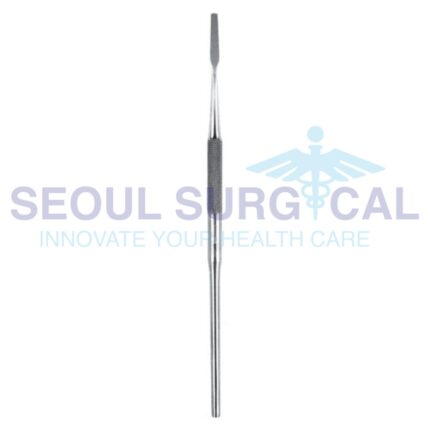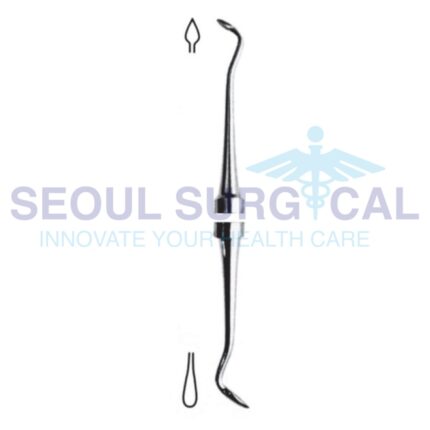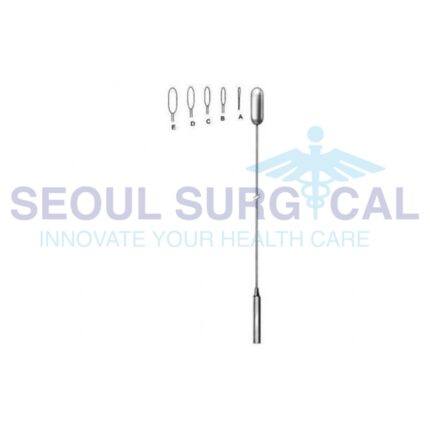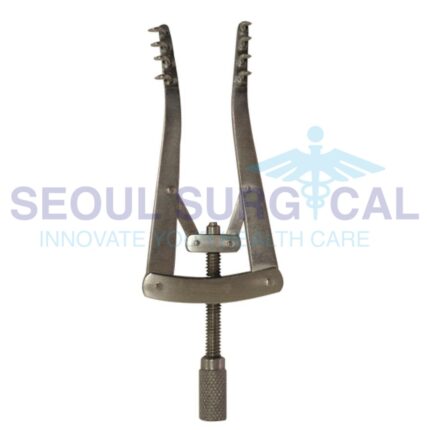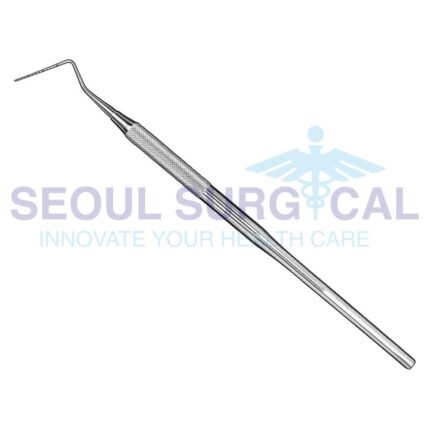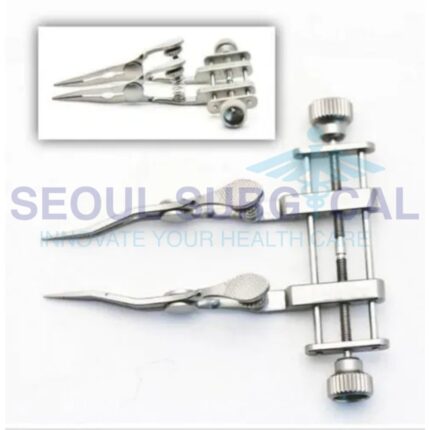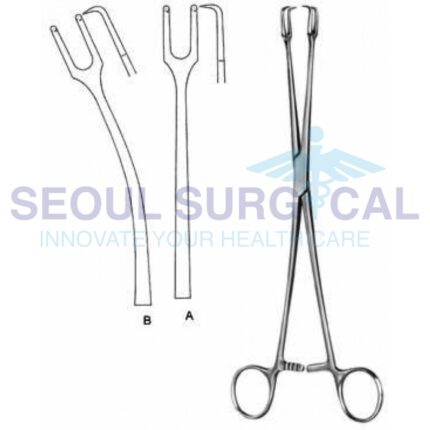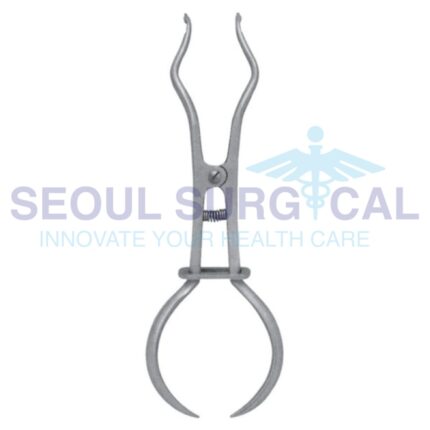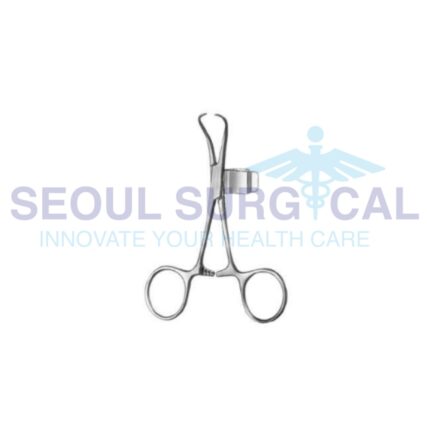Sculpting Smiles: Mastering Precision with Modern Root Splinter Forceps
If you have a specific type of dental forceps or instrument in mind, or if you can provide more details about the context or purpose, I can offer more precise information. Additionally, consulting with a dental professional for specific dental instrument recommendations or explanations would be beneficial.
Sculpting Smiles: Mastering Precision with Modern Wisdom Tooth Forceps
Sculpting Smiles: Mastering Tooth Preparation with Modern Excavators
Dental professionals use excavators in combination with other dental instruments, such as dental burs and handpieces, to achieve precise and effective cavity preparation. The selection of a specific type of excavator depends on factors such as the location of the cavity, the extent of decay, and the dentist's preference and experience.
Sculpting Smiles: The Craft of Cement Application with Advanced Spatulas
Proper handling and cleaning of cement spatulas are essential to prevent contamination and ensure accurate mixing. Dental professionals adhere to strict infection control protocols, including autoclaving or other sterilization methods, to maintain the hygiene of these instruments. The specific design of cement spatulas can vary among manufacturers and may be tailored to the preferences of dental practitioners.
Sculpting Smiles: The Role of Cleoid Discoids in Advanced Dental Techniques
Dental professionals, such as dentists and dental hygienists, use cleoid discoids in combination with other dental instruments to achieve precise and aesthetically pleasing restorations. The selection of specific instruments often depends on the type of procedure, the tooth being treated, and the materials used in the restoration.
Sculpting Success: The Role of Specialized Instruments in Urological Procedures
These instruments play a crucial role in the diagnosis and treatment of urological conditions, including kidney stones, prostate issues, bladder disorders, and male reproductive health. The selection of instruments depends on the specific procedure, patient condition, and the urologist's preferences. Advances in technology continue to contribute to the development of innovative and minimally invasive urology procedures.
Sculpting Your Look: Exploring the Latest Grooming Aids and Instruments
These grooming aids instruments are particularly useful for individuals with disabilities, seniors, or anyone who may face challenges in performing routine personal care tasks independently. They contribute to improving autonomy and maintaining personal hygiene and grooming standards. The specific aids needed depend on an individual's unique needs and abilities.
Sealing Smiles: Exploring the World of Cavity Liners in Dentistry
The selection of a specific type of cavity liner depends on various factors, including the depth of the cavity, the materials used for the restoration, and the overall condition of the tooth. The choice is often influenced by the dentist's clinical judgment and the patient's individual needs. It's important to stay updated with advancements in dental materials and follow evidence-based practices when incorporating cavity liners into restorative treatments
Seamless Sutures: Navigating Tissue Closure with Advanced Surgical Approximators
The choice of a specific surgical approximator depends on the nature of the surgery, the type and location of tissues being approximated, and the surgeon's preference. Surgical approximators play a crucial role in promoting proper wound healing, reducing the risk of infection, and minimizing scarring.
Secure Hold: The Role of Organ Grasping Forceps in Minimally Invasive Surgery
Secure Isolation: Exploring the Role of Rubber Dam Forceps in Dentistry
Secure Sealing: Exploring the Functionality of Bile Duct Clamps in Surgical Practice
These clamps are typically made of stainless steel or other materials compatible with sterilization procedures. The choice of a specific bile duct clamp depends on the nature of the surgical procedure, the anatomical location, and the surgeon's preference. Bile duct clamps are crucial tools that allow surgeons to safely and temporarily control the flow of bile during various hepatobiliary and pancreatic surgeries, contributing to the success and safety of these procedures.

